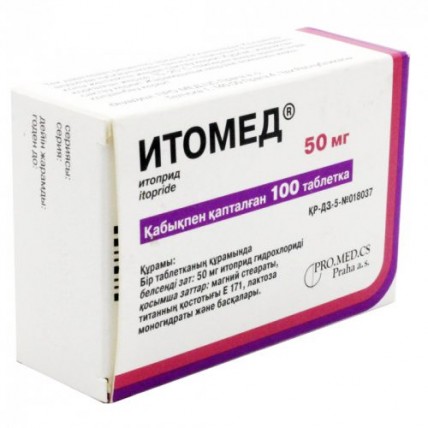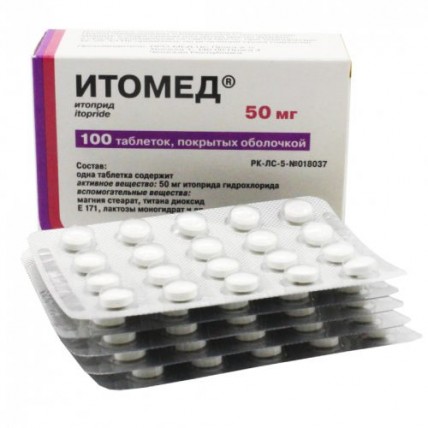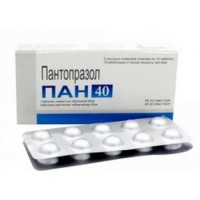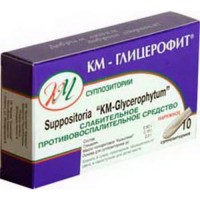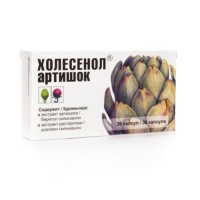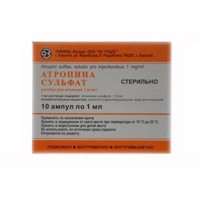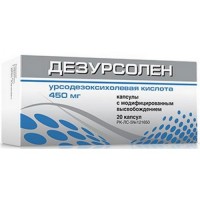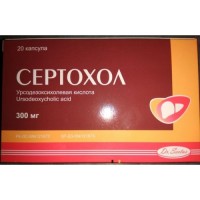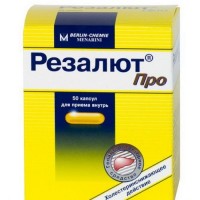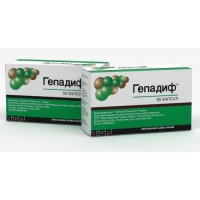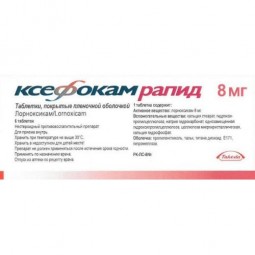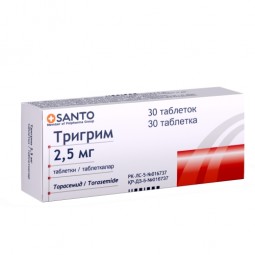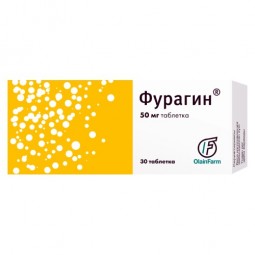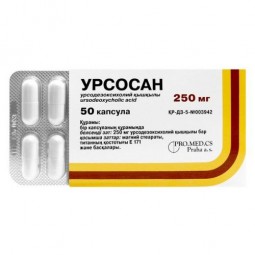ITOMED® (Itopride) 50 mg, 100 coated tablets
- $59.00
One tablet contains
Itopride hydrochloride is rapidly and almost completely absorbed from the gastrointestinal tract (GIT). Relative bioavailability is 60%, due to metabolism during the first passage through the liver (first-pass effect). Food does not affect the bioavailability of the drug.
After taking 50 mg of itopride hydrochloride orally, the maximum plasma concentration C max is reached after 0.5 hours and is 0.28 μg / ml. With repeated administration of the drug at a dose of 50-200 mg 3 times / day for 7 days, the pharmacokinetics of the drug and its metabolites was linear, and cumulation was minimal. Binding to plasma proteins (mainly albumin) by 96%. Binding to α 1 -acid glycoprotein is less than 15% of the total binding.
It is actively distributed in tissues, the volume of distribution is 6.1 l / kg. It is found in high concentrations in the kidneys, small intestine, liver, adrenal glands and stomach. Penetrates through the blood-brain barrier (BBB) in minimal amounts. It is allocated with breast milk. Itopride undergoes active biotransformation in the liver. Three metabolites have been identified, only one of which exhibits little activity that has no pharmacological significance (approximately 2–3% of that of itopride). The primary metabolite is the N-oxide, which results from the oxidation of the quaternary amino-N-dimethyl group.
Itopride is metabolized in the liver by flavin-dependent monooxygenase 3 (FMO3). The amount and potency of flavin-dependent monooxygenase 3 (FMO3) isoenzymes in humans may differ depending on the genetic polymorphism that rarely leads to the development of an autosomal recessive condition known as trimethylaminuria (fish odor syndrome). In patients with trimethylaminuria, the half-life of itopride is increased. According to in vivo pharmacokinetic studies , itopride has no inhibitory or inducing effect on CYP2C19 and CYP2E1. Itopride therapy does not affect CYP or uridine diphosphate glucuronosyl transferase activity.
Itopride hydrochloride and its metabolites are excreted primarily in the urine. Renal excretion of itopride and its N-oxide after a single oral dose of the drug in therapeutic doses in healthy people was 3.7 and 75.4% respectively.
The terminal half-life of itopride hydrochloride is approximately 6 o'clock
Itopride hydrochloride enhances propulsive motility of the gastrointestinal tract (GIT) due to antagonism with dopamine D 2 receptors and dose-dependent inhibition of acetylcholinesterase activity. Itopride activates the release of acetylcholine and inhibits its destruction.
Itopride hydrochloride has a specific effect on the upper gastrointestinal tract (GIT), accelerates transit through the stomach and improves its emptying.
The drug also has an antiemetic effect due to interaction with D 2 receptors located in the trigger zone. Itopride exerts a dose-dependent suppression of apomorphine-induced emesis.
Itopride hydrochloride affects the concentration of gastrin in the blood plasma.
The drug is intended for the treatment of symptoms of gastrointestinal diseases caused by a decrease in gastrointestinal motility:
- bloating
- Feeling full quickly
- pain or discomfort in the upper abdomen, not associated with gastric ulcer or other organic pathology
- anorexia
- heartburn
- nausea
- vomit
Dose for adults - 50 mg (1 tablet) 3 times / day before meals. The recommended daily dose is 150 mg. The specified dose can be reduced taking into account the age of the patient, depending on the severity of the disease. The dose and duration of treatment depends on the clinical condition of the patient.
Itomed® is usually well tolerated by patients.
Infrequently:
- diarrhea
- constipation
- epigastric pain
- increased salivation
- nausea
- jaundice
- increased activity of aspartate aminotransferase (AST) and alanine aminotransferase (ALT), gamma-glutamyl transferase (GGT), alkaline phosphatase (AP) and bilirubin levels
- headache, dizziness, tremor
- leukopenia, thrombocytopenia
- irritability
- sleep disturbance
- back or chest pain
- increased prolactin hormone, gynecomastia
Rare:
- allergic reactions: flushing of the skin, pruritus, rash, anaphylaxis
The above adverse reactions are usually not very pronounced and disappear when therapy is discontinued.
- hypersensitivity to itopride or any auxiliary component of the drug
- gastrointestinal bleeding, mechanical obstruction or perforation of the gastrointestinal tract (GIT)
- pregnancy and lactation
- children's age up to 16 years
Metabolic interaction is hardly possible, because Itopride is metabolized by flavin-dependent monooxygenase (FMO) rather than by cytochrome P450 isoenzymes.
With the simultaneous use of the drug Itomed® with warfarin, diazepam, diclofenac sodium, ticlopidine hydrochloride, nifedipine and nicardipine hydrochloride, no changes in protein binding were observed.
Itopride enhances gastric motility, so it may interfere with the absorption of other concomitant oral medications. Particular care should be taken when using preparations with a low therapeutic index, as well as forms with a sustained release of the active substance or enteric-coated preparations.
Antiulcer agents such as cimetidine, ranitidine, teprenone and cetraxate do not interfere with the prokinetic action of itopride.
Anticholinergics may reduce the effect of Itomed®.
The drug should be used with caution in patients for whom the appearance of cholinergic adverse reactions (associated with an increase in the action of acetylcholine under the influence of itopride) may aggravate the course of the underlying disease.
Elderly patients, given the decrease in their liver and kidney function, should be under constant medical supervision in order to timely take the necessary measures in case of adverse reactions, for example, reduce the dosage.
Itomed® may cause an increase in prolactin levels. If symptoms of galactorrhea or gynecomastia appear, treatment should be interrupted or completely discontinued. The preparation contains lactose. Patients with rare hereditary problems of galactose intolerance, the Lapp lactase deficiency or glucose-galactose malabsorption should not take this medicine.
During treatment, alcoholic beverages should not be used.
Application in pediatrics
Given the lack of data on the safety and efficacy of the drug in pediatric practice, it is recommended to refrain from prescribing it in childhood.
Use during pregnancy and lactation
The safety of the drug during pregnancy has not been tested, so its use during pregnancy is not recommended. Itopride passes into breast milk. Given the lack of experience in its use by women during lactation, the drug is not recommended for use during lactation.
Influence on the ability to drive vehicles and potentially dangerous mechanisms
In therapeutic doses, the drug does not affect the speed of psychomotor reactions and concentration. When using the drug Itomed®, it is impossible to exclude a decrease in concentration due to such adverse reactions as dizziness and irritability.
Data on drug overdose in humans are not available.
Treatment : with a possible overdose, gastric lavage and symptomatic therapy are indicated.
In a dry, dark place, at a temperature of 15 - 25 ºС.
Keep out of the reach of children!
Shelf life - 3 years
Do not use after the expiration date.
- Active ingredient - itopride hydrochloride 50 mg,
- Excipients: lactose monohydrate, pregelatinized corn starch, croscarmellose sodium, anhydrous colloidal silicon dioxide, magnesium stearate,
- Shell composition: Opadry II white 85F18422: titanium dioxide E 171, talc, polyvinyl alcohol, polyethylene glycol.
Pharmacological properties
Pharmacokinetics
Itopride hydrochloride is rapidly and almost completely absorbed from the gastrointestinal tract (GIT). Relative bioavailability is 60%, due to metabolism during the first passage through the liver (first-pass effect). Food does not affect the bioavailability of the drug.
After taking 50 mg of itopride hydrochloride orally, the maximum plasma concentration C max is reached after 0.5 hours and is 0.28 μg / ml. With repeated administration of the drug at a dose of 50-200 mg 3 times / day for 7 days, the pharmacokinetics of the drug and its metabolites was linear, and cumulation was minimal. Binding to plasma proteins (mainly albumin) by 96%. Binding to α 1 -acid glycoprotein is less than 15% of the total binding.
It is actively distributed in tissues, the volume of distribution is 6.1 l / kg. It is found in high concentrations in the kidneys, small intestine, liver, adrenal glands and stomach. Penetrates through the blood-brain barrier (BBB) in minimal amounts. It is allocated with breast milk. Itopride undergoes active biotransformation in the liver. Three metabolites have been identified, only one of which exhibits little activity that has no pharmacological significance (approximately 2–3% of that of itopride). The primary metabolite is the N-oxide, which results from the oxidation of the quaternary amino-N-dimethyl group.
Itopride is metabolized in the liver by flavin-dependent monooxygenase 3 (FMO3). The amount and potency of flavin-dependent monooxygenase 3 (FMO3) isoenzymes in humans may differ depending on the genetic polymorphism that rarely leads to the development of an autosomal recessive condition known as trimethylaminuria (fish odor syndrome). In patients with trimethylaminuria, the half-life of itopride is increased. According to in vivo pharmacokinetic studies , itopride has no inhibitory or inducing effect on CYP2C19 and CYP2E1. Itopride therapy does not affect CYP or uridine diphosphate glucuronosyl transferase activity.
Itopride hydrochloride and its metabolites are excreted primarily in the urine. Renal excretion of itopride and its N-oxide after a single oral dose of the drug in therapeutic doses in healthy people was 3.7 and 75.4% respectively.
The terminal half-life of itopride hydrochloride is approximately 6 o'clock
Pharmacodynamics
Itopride hydrochloride enhances propulsive motility of the gastrointestinal tract (GIT) due to antagonism with dopamine D 2 receptors and dose-dependent inhibition of acetylcholinesterase activity. Itopride activates the release of acetylcholine and inhibits its destruction.
Itopride hydrochloride has a specific effect on the upper gastrointestinal tract (GIT), accelerates transit through the stomach and improves its emptying.
The drug also has an antiemetic effect due to interaction with D 2 receptors located in the trigger zone. Itopride exerts a dose-dependent suppression of apomorphine-induced emesis.
Itopride hydrochloride affects the concentration of gastrin in the blood plasma.
Indications for use
The drug is intended for the treatment of symptoms of gastrointestinal diseases caused by a decrease in gastrointestinal motility:
- bloating
- Feeling full quickly
- pain or discomfort in the upper abdomen, not associated with gastric ulcer or other organic pathology
- anorexia
- heartburn
- nausea
- vomit
Dosage and administration
Dose for adults - 50 mg (1 tablet) 3 times / day before meals. The recommended daily dose is 150 mg. The specified dose can be reduced taking into account the age of the patient, depending on the severity of the disease. The dose and duration of treatment depends on the clinical condition of the patient.
Side effects
Itomed® is usually well tolerated by patients.
Infrequently:
- diarrhea
- constipation
- epigastric pain
- increased salivation
- nausea
- jaundice
- increased activity of aspartate aminotransferase (AST) and alanine aminotransferase (ALT), gamma-glutamyl transferase (GGT), alkaline phosphatase (AP) and bilirubin levels
- headache, dizziness, tremor
- leukopenia, thrombocytopenia
- irritability
- sleep disturbance
- back or chest pain
- increased prolactin hormone, gynecomastia
Rare:
- allergic reactions: flushing of the skin, pruritus, rash, anaphylaxis
The above adverse reactions are usually not very pronounced and disappear when therapy is discontinued.
Contraindications
- hypersensitivity to itopride or any auxiliary component of the drug
- gastrointestinal bleeding, mechanical obstruction or perforation of the gastrointestinal tract (GIT)
- pregnancy and lactation
- children's age up to 16 years
Drug Interactions
Metabolic interaction is hardly possible, because Itopride is metabolized by flavin-dependent monooxygenase (FMO) rather than by cytochrome P450 isoenzymes.
With the simultaneous use of the drug Itomed® with warfarin, diazepam, diclofenac sodium, ticlopidine hydrochloride, nifedipine and nicardipine hydrochloride, no changes in protein binding were observed.
Itopride enhances gastric motility, so it may interfere with the absorption of other concomitant oral medications. Particular care should be taken when using preparations with a low therapeutic index, as well as forms with a sustained release of the active substance or enteric-coated preparations.
Antiulcer agents such as cimetidine, ranitidine, teprenone and cetraxate do not interfere with the prokinetic action of itopride.
Anticholinergics may reduce the effect of Itomed®.
Special instructions
The drug should be used with caution in patients for whom the appearance of cholinergic adverse reactions (associated with an increase in the action of acetylcholine under the influence of itopride) may aggravate the course of the underlying disease.
Elderly patients, given the decrease in their liver and kidney function, should be under constant medical supervision in order to timely take the necessary measures in case of adverse reactions, for example, reduce the dosage.
Itomed® may cause an increase in prolactin levels. If symptoms of galactorrhea or gynecomastia appear, treatment should be interrupted or completely discontinued. The preparation contains lactose. Patients with rare hereditary problems of galactose intolerance, the Lapp lactase deficiency or glucose-galactose malabsorption should not take this medicine.
During treatment, alcoholic beverages should not be used.
Application in pediatrics
Given the lack of data on the safety and efficacy of the drug in pediatric practice, it is recommended to refrain from prescribing it in childhood.
Use during pregnancy and lactation
The safety of the drug during pregnancy has not been tested, so its use during pregnancy is not recommended. Itopride passes into breast milk. Given the lack of experience in its use by women during lactation, the drug is not recommended for use during lactation.
Influence on the ability to drive vehicles and potentially dangerous mechanisms
In therapeutic doses, the drug does not affect the speed of psychomotor reactions and concentration. When using the drug Itomed®, it is impossible to exclude a decrease in concentration due to such adverse reactions as dizziness and irritability.
Overdose
Data on drug overdose in humans are not available.
Treatment : with a possible overdose, gastric lavage and symptomatic therapy are indicated.
Storage conditions
In a dry, dark place, at a temperature of 15 - 25 ºС.
Keep out of the reach of children!
Shelf life - 3 years
Do not use after the expiration date.
